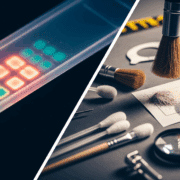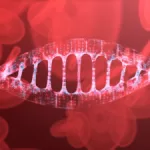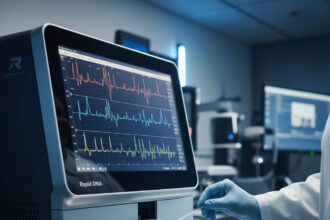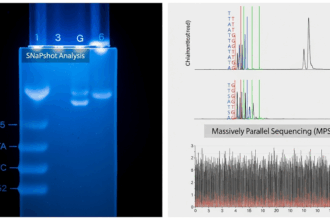Introduction: The Backbone of Forensic Science
Crime scene investigation is a cornerstone of modern forensic science

- Introduction: The Backbone of Forensic Science
- The Primary Responsibilities of a Crime Scene Investigator
- 1. Securing and Documenting the Crime Scene
- 2. Evidence Collection and Preservation
- 3. Analysis and Interpretation of Evidence
- Essential Skills and Qualities of a Crime Scene Investigator
- 1. Attention to Detail
- 2. Scientific Knowledge and Analytical Skills
- 3. Communication and Reporting Skills
- The Impact of Technology on Crime Scene Investigation
- Challenges Faced by Crime Scene Investigators
- The Future of Crime Scene Investigation
- Conclusion: The Enduring Importance of Crime Scene Investigators
The Primary Responsibilities of a Crime Scene Investigator
1. Securing and Documenting the Crime Scene
One of the first and most critical tasks of a Crime Scene Investigator is to secure the crime scene. This involves:
- Establishing a perimeter to prevent contaminationContamination - The unwanted transfer of material from another source to a piece of physical evidence. The inadvertent touching of a weapon, thereby adding fingerprints to it is an example of evidence contamination. Read Full Definition
- Documenting the scene through photographs and sketches
- Creating a detailed log of all individuals entering and exiting the area
By meticulously documenting the crime scene’s initial state, CSIs ensure that valuable evidence is preserved and can be accurately analyzed later.
2. Evidence Collection and Preservation
The role of a Crime Scene Investigator revolves heavily around the collection and preservation of evidence. This process includes:
- Identifying potential sources of physical evidence
- Carefully collecting items using appropriate techniques
- Properly packaging and labeling all collected evidence
- Maintaining a clear chain of custodyChain of custody - The process used to maintain and document the chronological history of the evidence. Documents record the individual who collects the evidence and each person or agency that subsequently takes custody of Read Full Definition for each piece of evidence
CSIs must be well-versed in various collection methods, from lifting fingerprintsFingerprint, impression made by the papillary ridges on the ends of the fingers and thumbs. Fingerprints afford an infallible means of personal identification, because the ridge arrangement on every finger of every human being is Read Full Definition to collecting DNA DNA, or Deoxyribonucleic Acid, is the genetic material found in cells, composed of a double helix structure. It serves as the genetic blueprint for all living organisms. Read Full Definition samples, ensuring that each piece of evidence is handled in a manner that preserves its integrity.
DNA, or Deoxyribonucleic Acid, is the genetic material found in cells, composed of a double helix structure. It serves as the genetic blueprint for all living organisms. Read Full Definition samples, ensuring that each piece of evidence is handled in a manner that preserves its integrity.
3. Analysis and Interpretation of Evidence
While laboratory technicians often perform detailed analyses, Crime Scene Investigators play a crucial role in the initial interpretation of evidence at the scene. This includes:
- Recognizing patterns and potential connections between pieces of evidence
- Forming preliminary hypotheses about the sequence of events
- Identifying areas that require further investigation or specialized analysis
This on-site analysis helps guide the direction of the investigation and ensures that no critical details are overlooked.
Essential Skills and Qualities of a Crime Scene Investigator
1. Attention to Detail
The role of a Crime Scene Investigator demands an exceptional level of attention to detail. CSIs must be able to:
- Notice minute details that others might overlook
- Recognize subtle patterns or inconsistencies in the crime scene
- Maintain focus and precision even in challenging or emotionally charged environments
This keen eye for detail can often be the difference between solving a case and letting crucial evidence slip through the cracks.
2. Scientific Knowledge and Analytical Skills
Crime Scene Investigators must possess a strong foundation in various scientific disciplines, including:
- Biology and chemistry for understanding DNA and other trace evidenceTrace evidence - Physical evidence that results from the transfer of small quantities of materials (e.g., hair, textile fibers, paint chips, glass fragments, gunshot residue particles). Read Full Definition
- Physics for analyzing blood spatter patterns and bullet trajectories
- Psychology for interpreting crime scene behaviors and motivations
In addition to this scientific knowledge, CSIs must have excellent analytical skills to interpret the evidence they collect and draw logical conclusions.
3. Communication and Reporting Skills
Effective communication is vital in the role of a Crime Scene Investigator. CSIs must be able to:
- Clearly document their findings in detailed reports
- Testify in court as expert witnesses
- Collaborate with other law enforcement professionals and forensic experts
The ability to articulate complex scientific concepts clearly and concisely is crucial for ensuring that their work contributes effectively to the overall investigation and prosecution process.
The Impact of Technology on Crime Scene Investigation
Advanced Imaging Techniques
Modern technology has significantly enhanced the role of a Crime Scene Investigator. Advanced imaging techniques now allow CSIs to:
- Create 3D scans of crime scenes for more accurate documentation
- Use alternate light sources to reveal otherwise invisible evidence
- Employ thermal imaging to detect hidden evidence or recent activity
These technological advancements have expanded the capabilities of CSIs, allowing them to uncover evidence that might have been missed in the past.
DNA Analysis and Databases
The field of DNA analysis has revolutionized forensic science, and Crime Scene Investigators play a crucial role in this process by:
- Collecting DNA samples using contamination-free techniques
- Understanding the potential sources of DNA evidence at a crime scene
- Utilizing rapid DNA analysis technologies for quicker results
The ability to link DNA evidence to national databases has significantly increased the solving rate of both current and cold cases.
Challenges Faced by Crime Scene Investigators
Emotional and Psychological Stress
The role of a Crime Scene Investigator often involves exposure to disturbing and traumatic scenes. CSIs must:
- Develop coping mechanisms to deal with the emotional impact of their work
- Maintain objectivity and professionalism in highly emotional situations
- Seek support when needed to prevent burnout and maintain mental health
Organizations increasingly recognize the importance of providing psychological support and resources for CSIs to address these challenges.
Evolving Criminal Techniques
As technology advances, so do the methods used by criminals to commit and conceal their crimes. Crime Scene Investigators must:
- Stay updated on the latest criminal techniques and countermeasures
- Continuously adapt their investigative methods
- Participate in ongoing training and professional development
This constant evolution of the field requires CSIs to be lifelong learners, always seeking to expand their knowledge and skills.
The Future of Crime Scene Investigation
Integration of Artificial Intelligence
The role of a Crime Scene Investigator is likely to evolve with the integration of artificial intelligence (AI) in forensic science. Future CSIs may:
- Use AI-powered tools for faster evidence processing and analysis
- Employ machine learning algorithms to identify patterns across multiple crime scenes
- Utilize predictive modeling to guide investigative strategies
While AI will enhance the capabilities of CSIs, the human element of interpretation and decision-making will remain crucial.
Increased Specialization
As forensic science becomes more complex, we may see increased specialization within the role of Crime Scene Investigators. This could lead to:
- CSIs with expertise in specific types of crimes (e.g., cybercrime, environmental crimes)
- Specialized teams focusing on particular aspects of investigation (e.g., digital evidence, trace evidence)
- Closer collaboration between CSIs and other forensic specialists
This specialization will allow for more in-depth and targeted investigations, potentially increasing the solve rate for complex cases.
Conclusion: The Enduring Importance of Crime Scene Investigators
The role of a Crime Scene Investigator is both challenging and rewarding, requiring a unique blend of scientific knowledge, analytical skills, and personal resilience. As technology advances and criminal techniques evolve, skilled CSIs are essential in solving crimes and ensuring justice remains paramount.
For those considering a career in this field, the journey to becoming a Crime Scene Investigator is one of continuous learning and adaptation. It offers the opportunity to significantly impact society by uncovering the truth behind criminal activities and contributing to the fair administration of justice.
As we look to the future, the role of Crime Scene Investigators will undoubtedly continue to evolve. Still, their fundamental mission will remain the same: to meticulously examine crime scenes, collect and analyze evidence, and provide crucial insights that help bring criminals to justice and closure to victims and their families.










